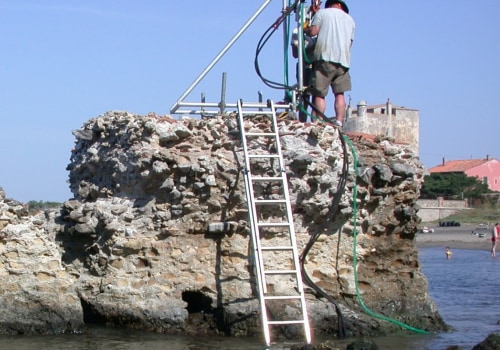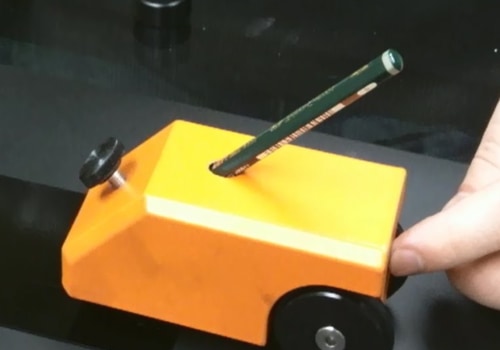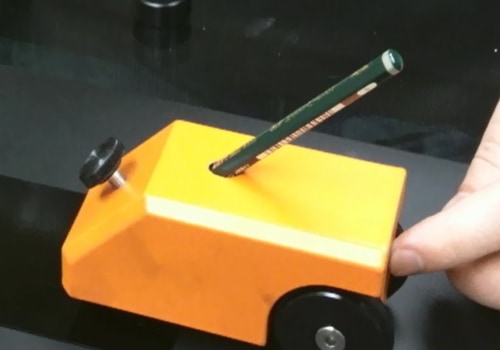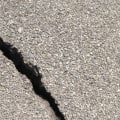Concrete is one of the most durable and reliable materials used in construction, but it is not immune to cracking. Cracks in concrete can be caused by a variety of factors, including drying too quickly, using less concrete strength than necessary, heat expansion, and more. Fortunately, filling cracks in a concrete driveway is a simple and relatively inexpensive DIY project. In this article, we will discuss the various reasons why concrete cracks and how to repair them. The first reason why concrete cracks is because it dries too quickly.
When the top of a concrete slab loses moisture too quickly, cracks are likely to appear. These very fine surface cracks, sometimes called “crazing”, are an indication that the concrete surface dried up too quickly when it was poured. While unsightly, these cracks in a concrete driveway do not indicate underlying structural problems. As long as the rest of your driveway is in good shape (no shaking, sinking, or crumbling), you can replace those small cracks with a smooth concrete surface by applying a high-quality resurfacing product, such as Quikrete Concrete Rejuvenator. The second reason why concrete cracks is because concrete strength is used less than should have been used. When the top of a concrete slab loses moisture too quickly, cracks are likely to appear. These very fine surface cracks, sometimes called “crazing”, are an indication that the concrete surface dried up too quickly when it was poured. While unsightly, these cracks in a concrete driveway do not indicate underlying structural problems. As long as the rest of your driveway is in good shape (no shaking, sinking, or crumbling), you can replace those small cracks with a smooth concrete surface by applying a high-quality resurfacing product, such as Quikrete Concrete Rejuvenator. The second reason why concrete cracks is because concrete strength is used less than should have been used.
If you push against another inflexible substance, such as a brick wall, it will break to relieve pressure buildup. This same principle applies to concrete; if you use less strength than necessary when pouring the concrete, it will crack under pressure. The third reason why concrete cracks is because of heat expansion. Concrete is prone to heat expansion, which can cause cracks. As it heats up, the concrete expands and pushes out. The fourth reason why concrete cracks is because of freezing and thawing cycles.
When water gets into the soil beneath the concrete slab and freezes, it expands and causes the soil to move. This movement of the soil caused by the freezing and thawing cycle is a huge factor contributing to the cracking of concrete. The fifth reason why concrete cracks is because of heavy loads or oversized vehicles. Oversized or extra-heavy vehicles can easily crack the driveway, as both concrete and asphalt have weight limits. The sixth reason why concrete cracks is because of tree roots or soil changes. The opposite of freezing and thawing is settlement, which is when the roots of decaying trees or when the soil collapses, as water damage causes concrete to sink and crack. Fortunately, filling cracks in a concrete driveway is a simple and relatively inexpensive DIY project.
Proper site preparation, quality mixing and good concrete finishing practices can go a long way in minimizing the appearance of cracks and producing a more aesthetically pleasing concrete project. If the rest of the concrete is solid and the surface is mostly smooth, correct the cracking by applying a resurfacing product. When properly installed, concrete is one of the most durable and reliable products you can use in your home. Caulking cracks and joints will keep your concrete looking like new and help increase the value of your property. If you want expert opinion on diagnosing cracked concrete, contact a nearby concrete contractor for an in-person assessment. Concrete repair contractors will provide crack sealing as part of a service package that includes sealing.








